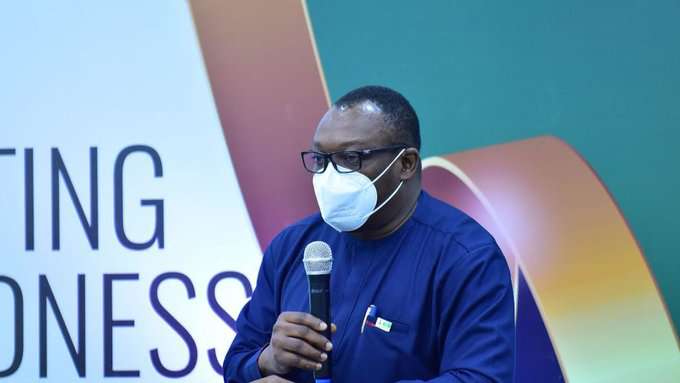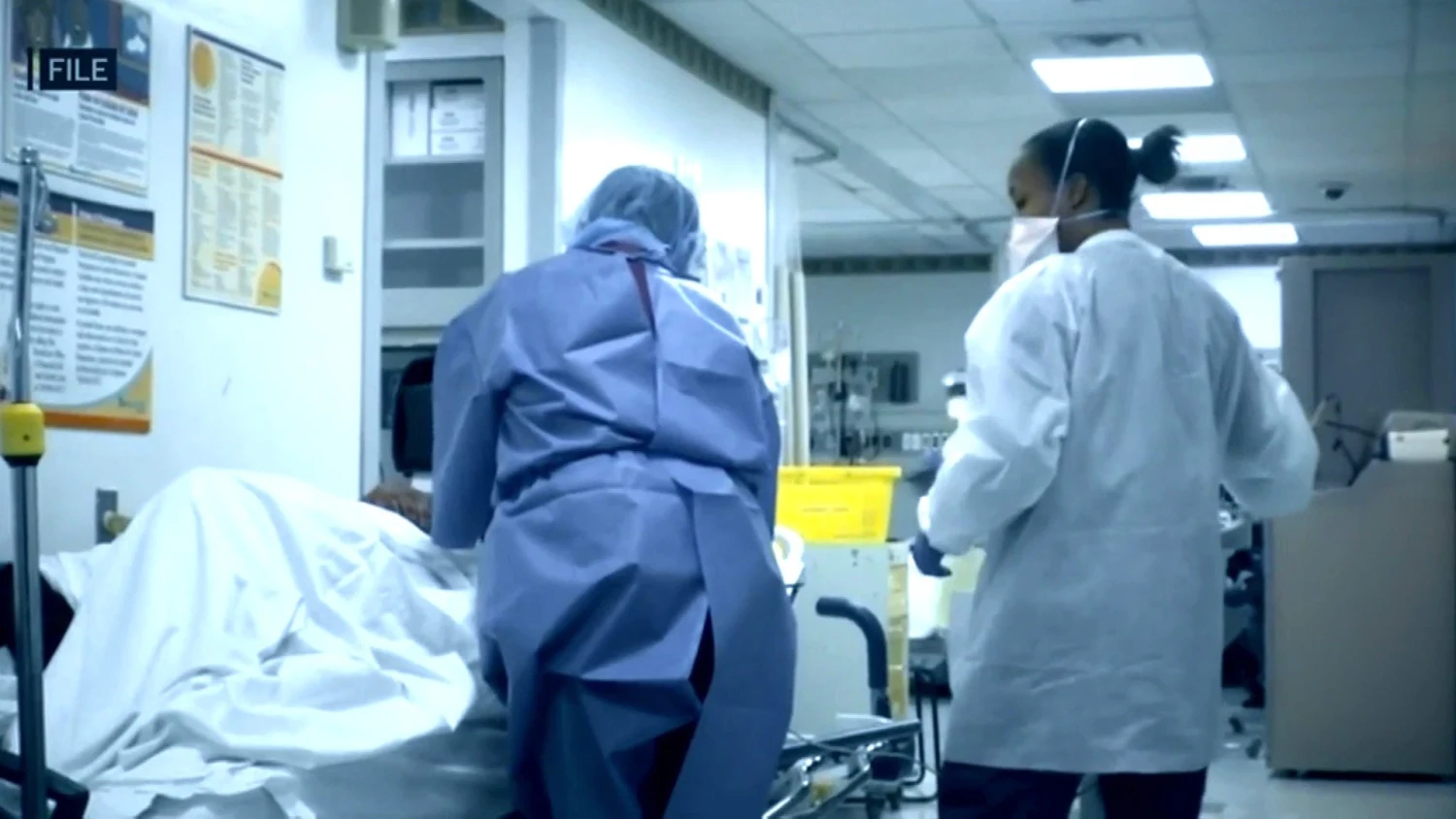Headlines
COVID-19: Govt. under pressure for lockdown, relief measures

By EMEKA EJERE
As the novel Coronavirus (COVID-19) infection spreads to pandemic proportions, there are concerns that only effective palliative measures by governments at all levels will save more vulnerable Nigerians from the harsh health and economic consequences of the crisis.
The Nigerian Centre for Disease Control (NCDC) in an update Thursday evening, said 14 new cases of COVID-19 had been confirmed in Nigeria, bringing the total to 65. Out of the 14 new cases, 12 are in Lagos while two are in FCT. According to NCDC six out of the 14 were detected on a vessel, three were returning travellers into Nigeria while one is a close contact of a confirmed case.
With more than 523,000 cases confirmed in 188 countries and territories, and over 14,000 people already killed, the pandemic is arguably the biggest challenge facing humanity today. Beyond its health impact, the spread of the virus is taking a toll on the global economy. In countries most affected such as China and European countries, travel restrictions and distancing measures have disrupted global supply chains, resulting in reduced economic activity.
Nigeria’s investment and trade are mostly with China, Europe, and the United States, which are territories currently vulnerable to COVID-19. Manufacturers relying on imported inputs will most likely face production challenges while reduced importation of food and pharmaceutical products would put a heavy burden on households and the healthcare system.
It is estimated that Nigeria could lose up to US$20 billion from crude oil sales – which represent 85% of its export – as fuel prices continue to fall. As oil revenue accounts for one-third of expected public revenue in 2020, governments will have limited capacity to support the economy.
Revenue shortfall will worsen Nigeria’s debt burden as around 60% of the federal government’s (FG) revenue already goes to debt servicing. State governments will struggle to pay employee salaries and related costs – similar to what happened during the 2014-16 oil price crisis.
Typically, Nigeria underfunds social sectors (health, education, and social safety net). Around 4% and 6% FG budget for 2020 went to Health and Education respectively, far below the recommended thresholds of 15% for Health and 20% for Education. Lower revenue means less money would be available to spend on health, education and critical infrastructure, as overhead and debt payments are usually prioritized during crises. The outcome could be very bad for a country that already has one of the worst health outcomes worldwide.
Nigeria currently has the largest number of extremely poor people in the world at 103 million and an average of 4 people join them every minute. Unemployment and poverty will worsen as workers in trade-sensitive businesses, particularly tourism, transport, hospitality, and non-essential manufactured goods are disengaged due to restricted movement of goods, services, and people.
Remittances from abroad, which support households, may also fall and worsen economic hardship. Around $25 billion of remittances – equivalent to the Federal Government of Nigeria budget – came into the country in 2019.
Expected government response
In a report published on Wednesday, March 25, Human Rights Watch (HRW) noted that Nigeria must ensure access to health services “on an equitable basis” and pay particular attention to displaced and vulnerable people while dealing with the coronavirus outbreak.
“The Nigerian government should ensure that its response to the COVID-19 pandemic is rooted in respect for human rights by ensuring access to standard health care services, clean water, and other necessities to the most vulnerable communities,” HRW said in a report.
“The services should be available on an equitable basis to those in low-income neighbourhoods and internally displaced people’s camps.”
The report noted a “sharp increase” in COVID-19 cases in Nigeria, which rose to 64 from eight in just a week, and urged authorities to prepare for the “worst of the crisis.”
“At this critical time, the authorities need to provide timely and accurate information on the country’s preparedness and address inconsistencies that may increase the vulnerability of its citizens, especially those most at risk.”
The report said over 1.8 million internally displaced people and over seven million Nigerians in need of urgent aid, including food, water, and health care.
“Given these underlying poor health conditions and lack of access to essential services in the camps, displaced people face an especially high risk of COVID-19 mortality. Some steps have been taken to help prevent the spread of COVID-19 in the camps, but much more needs to be done.”
HRW said the actual number of cases in the country could be much higher and remain unreported due to limited testing capacity.
“With only five testing laboratories in the country, three of them in [the capital] Lagos, the capacity for quick testing is limited and currently only available to those who have recently travelled internationally or had contact with those confirmed or suspected to have the virus,” the report said.
The rights group warned that following public health advisories on COVID-19 would be difficult for Nigerians in low-income neighbourhoods or camps for internally displaced people, where “people live in congested spaces with little or no access to necessities, including water.”
Meanwhile, the World Food Programme (WFP) believes “It is still too early for an accurate assessment of the impact of COVID-19 on the economy.”
It’s Chief Economist, Arif Husain, who spoke from Rome, the capital city of heavily hit Italy said: “Too much depends on what is not known — how long the outbreak lasts, how many countries it affects, and the type of policies governments will put in place to respond to the crisis.”
“What is sure is that an economic downturn is to be expected at the global level and that this is likely to trickle down to developing economies. In these contexts, a slowdown in the economy can exacerbate existing food insecurity. It limits people’s ability to access nutritious food in different ways, including through reduced income or increased job insecurity,” Husain explains.
In a report published on the humanitarian organisation’s website, Husain said while the food and agricultural sector should in principle be less affected than others, illness-related labour shortages, transport interruptions, quarantine measures limiting access to markets and supply chain disruptions resulting in food loss and waste could affect supply.
On the demand side, the report said, a loss of purchasing power caused by the disease could change people’s eating patterns, resulting in poorer nutrition. Panic purchases of food — like those recently witnessed in countries around the world — could break the supply chain and cause localized price hikes.
It further notes that apart from the food security implications of a COVID-19-triggered economic slowdown, an extensive spread of the disease in a poorer and more food insecure country could take a heavier toll on the economy than in those currently affected.
“Countries with high levels of food insecurity are generally more vulnerable and less prepared for an epidemic outbreak and would likely see higher mortality rates,” Husain notes.
According to analysts at the Afrinvest, government’s response should come in two approaches: focusing on immediate priorities and implementing reforms to boost resilience beyond the crisis. They say beyond international travel restrictions and stimulus for businesses more must be done to protect vulnerable households.
The analysts note ”Prior to COVID-19, healthcare institutions were already overburdened with many ailments given poor medical supplies, shortage of medical workers and poor infrastructure.
“To have a fighting chance against COVID-19 and in treating those requiring intensive care, the healthcare sector must be supported through adequate funding, incentives for health workers and health care subsidies for the most vulnerable people.
“Through targeted tax incentives, social transfers, and regulatory support, the Nigerian government could help minimize the impact of COVID-19 on the most vulnerable businesses and citizens.
“With the adoption of social distancing measures to limit the spread of the virus, the government should partner with informal groups such as trade associations, who have a wider reach, to deliver support to people in vulnerable employment.
State governments have improved their resilience to oil-related crises by improving Internally Generated Revenue (IGR) but many would struggle to pay salaries given the crisis. Therefore, the FG and the CBN can expand loans to states to enable them to pay workers and support the healthcare sector.”
Former vice president, Atiku Abubakar, has also called on the federal government to provide a stimulus package for Nigerian families as the nation battles the spread of coronavirus (COVID-19). In a statement on Wednesday, March 25, Atiku, whose son, Mohammed, recently tested positive for the virus, said a large percentage of Nigerians lack the financial capacity to withstand restricted activity as is currently required.
He, therefore, called on the federal and state governments to provide palliatives for Nigerians to survive the current difficult times.
“At an approximate 30 million households or thereabout, the government should devise modalities to distribute N10,000 as a supplement for foodstuff to each household, among other palliative measures, with no one left behind.
“It is thus time for the National Assembly to reconvene in an emergency session, perhaps by teleconference (in line with the demands of social distancing), to legislate a Stimulus Package Act that will cater for all Nigerian citizens,” he said.
To show his commitment to his call, Atiku, who lost the presidential election in 2019, pledged the donation of N50 million as a contribution to a relief fund that will form part of the stimulus package.
He also called on all mobile telephony companies in the country to develop mobile money platforms so that the government will be able to reach unbanked Nigerians with the proposed package.
“I also urge these telecommunications firms to offer each of the 100 million mobile phone lines in Nigeria free credit of at least ₦1500 per mobile line, so that Nigerians who show symptoms, or those who just want information, can call the nearest available health facility, or even an ambulance service, as the case may be,” he said.
Response so far
President Muhammadu Buhari, on Thursday, announced several policy actions to contain the growing cases of Coronavirus pandemic in the country. In a statement he signed, the president directed immediate release of N10 billion to Lagos State, the current epicentre of the outbreak, and N5 billion to the Nigerian Centre for Disease Control.
Buhari also assured Nigerians that his administration was considering fiscal policy measures to alleviate their suffering at this trying time.
“Over the last few days I have received extensive briefings on the state of the nation as it relates to the Covid-19 pandemic, from the relevant Federal Government agencies as well as the Lagos State Government,” Buhari said.
“Accordingly, I approved the following:
“The immediate release of a 10 billion Naira grant to Lagos State, which remains the epicentre of the Covid-19 outbreak in Nigeria. This grant will enable Lagos to increase its capacity to control and contain the outbreak, while also supporting other States with capacity-building.
“The immediate release of a 5 billion Naira special intervention fund to the Nigeria Center for Disease Control (NCDC) to equip, expand and provide personnel to its facilities and laboratories across the country.
“The Nigerian Air Force is already making it is fleet available to the Presidential Task Force on Covid-19, to enable a better coordinated and more effective response across the country.
On the 2020 budget review, the president said:
“As you are aware we have begun the process of reviewing the federal budget. We shall communicate our fiscal interventions once the budget review process is concluded.
“In the meantime, I have directed the Minister of Industry, Trade and Investment, to work with the Manufacturers Association of Nigeria (MAN), to ensure that all production of essential items such as food, medical and pharmaceutical products continues unhindered.
The Central bank of Nigeria (CBN) had earlier announced an N50billion stimulus package and subsequently issued guidelines for accessing it by businesses most affected by the pandemic.








